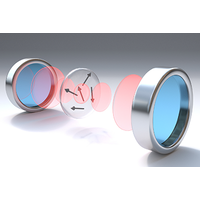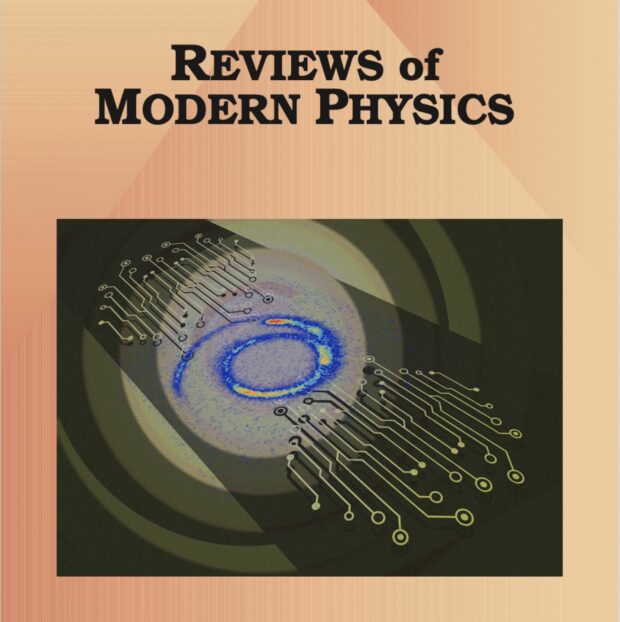专题讨论会:腔增强量子网络节点
IF 44.8
1区 物理与天体物理
Q1 PHYSICS, MULTIDISCIPLINARY
引用次数: 4
摘要
未来的量子网络将由通过量子通道连接的量子处理器组成,就像传统计算机连接起来形成互联网一样。然而,与经典器件相比,量子控制系统中可用的纠缠和非局域关联有助于量子理论的新的基础测试。此外,它们在分布式量子信息处理、量子通信和精确测量方面有着广泛的应用。而开创性的实验已经证明了两个量子节点的纠缠,它们相隔1。3公里,在同一个实验室中有三个节点,要想充分发挥量子网络的潜力,需要将这些原型扩展到更多的节点和全球距离。这是一个突出的挑战,对量子位控制精度、量子位相干时间以及静止量子位和流动量子位之间的耦合效率提出了很高的要求。在这项工作中,我将描述光学谐振器如何通过实现高效量子位初始化和读出、有效生成量子位光子和远程量子位量子纠缠,促进量子网络节点在不同的物理系统中实现上述先决条件——捕获原子、宽带隙半导体中的缺陷中心和稀土掺杂剂,以及静止量子位和流动量子位之间的量子门。这些进展为在不久的将来实现全球规模的量子网络开辟了现实的前景。本文章由计算机程序翻译,如有差异,请以英文原文为准。

Colloquium
: Cavity-enhanced quantum network nodes
A future quantum network will consist of quantum processors that are connected by quantum channels, just like conventional computers are wired up to form the Internet. In contrast to classical devices, however, the entanglement and non-local correlations available in a quantum-controlled system facilitate novel fundamental tests of quantum theory. In addition, they enable numerous applications in distributed quantum infor- mation processing, quantum communication, and precision measurement. While pioneering experiments have demonstrated the entanglement of two quantum nodes separated by up to 1 . 3km, and three nodes in the same laboratory, accessing the full potential of quantum networks requires scaling of these prototypes to many more nodes and global distances. This is an outstanding challenge, posing high demands on qubit control fidelity, qubit coherence time, and coupling efficiency between stationary and flying qubits. In this work, I will describe how optical resonators facilitate quantum network nodes that achieve the above-mentioned prerequisites in different physical systems — trapped atoms, defect centers in wide-bandgap semiconductors, and rare-earth dopants — by en- abling high-fidelity qubit initialization and readout, efficient generation of qubit-photon and remote qubit-qubit entanglement, as well as quantum gates between stationary and flying qubits. These advances open a realistic perspective towards the implementation of global-scale quantum networks in the near future.
求助全文
通过发布文献求助,成功后即可免费获取论文全文。
去求助
来源期刊

Reviews of Modern Physics
物理-物理:综合
CiteScore
76.20
自引率
0.70%
发文量
30
期刊介绍:
Reviews of Modern Physics (RMP) stands as the world's foremost physics review journal and is the most extensively cited publication within the Physical Review collection. Authored by leading international researchers, RMP's comprehensive essays offer exceptional coverage of a topic, providing context and background for contemporary research trends. Since 1929, RMP has served as an unparalleled platform for authoritative review papers across all physics domains. The journal publishes two types of essays: Reviews and Colloquia. Review articles deliver the present state of a given topic, including historical context, a critical synthesis of research progress, and a summary of potential future developments.
 求助内容:
求助内容: 应助结果提醒方式:
应助结果提醒方式:


